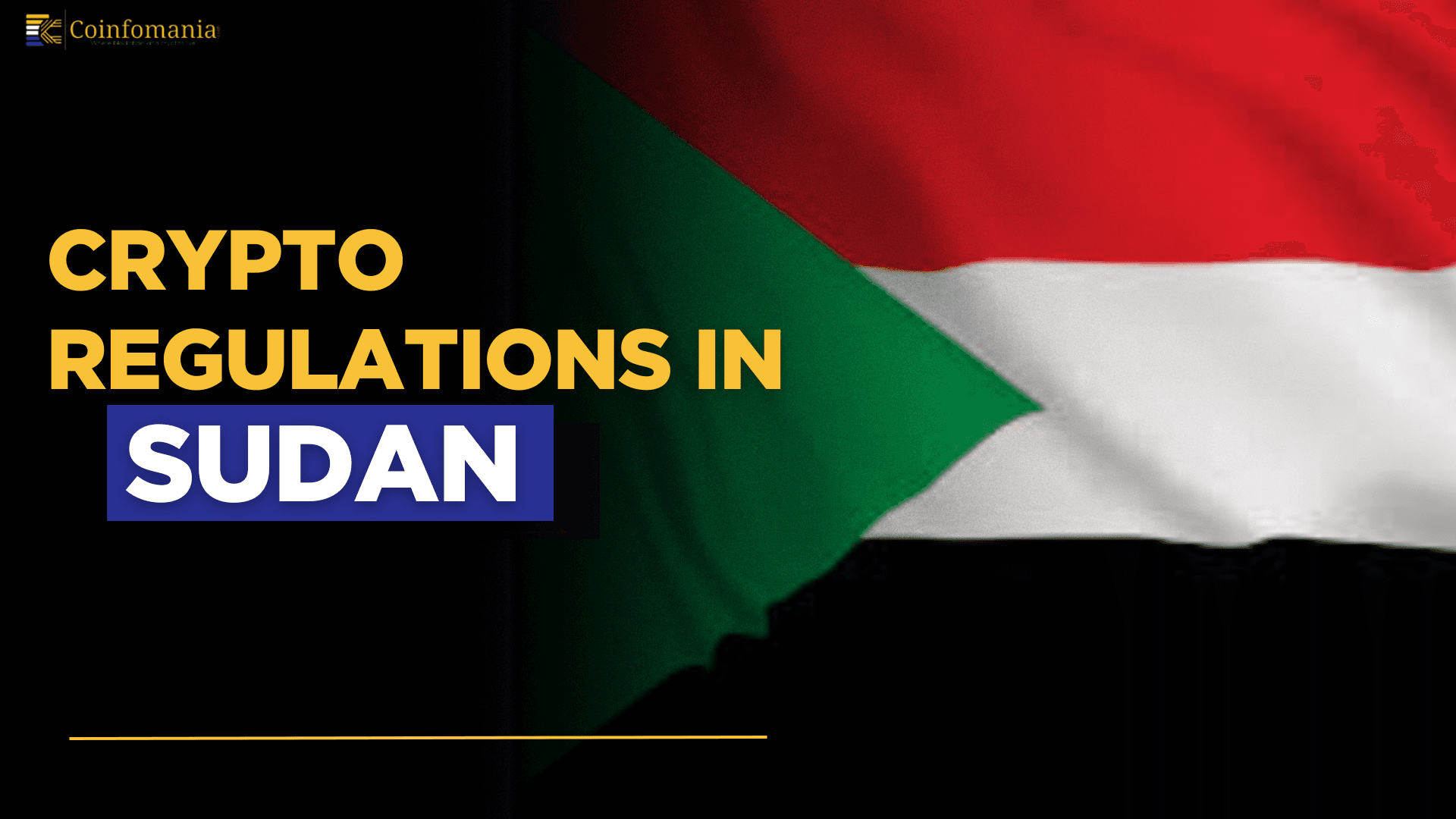Cryptocurrency Regulation in Sudan
Sudan is facing a spiral of inflation, a consistent lack of funds, and a lack of access to international banking. It is on this basis that the informal crypto trading has thrived, despite the lack of any special virtual-asset legislation. At present, there is only the Electronic Transactions Act of 2007 in Sudan, anti-money-laundering (AML) […]

Sudan is facing a spiral of inflation, a consistent lack of funds, and a lack of access to international banking. It is on this basis that the informal crypto trading has thrived, despite the lack of any special virtual-asset legislation. At present, there is only the Electronic Transactions Act of 2007 in Sudan, anti-money-laundering (AML) circulars and occasional warnings by the Central Bank of Sudan (CBOS) that digital assets are not understood as money and are extremely dangerous in terms of fraud and volatility.
Historical Context
2007: The first digital-commerce law, the Electronic Transactions Act in Sudan, fully dealt with e-signatures and data privacy but was written before Bitcoin.
2018: Diaspora groups sent small transfers of Bitcoin and Litecoin, which local conversion took place via hawala desks.
2020: Sudan became a member of this UN-promoted movement to modernise government payments, which indirectly increased the digital-payments culture.
2022: CBOS crypto warning: The central bank sent a nationwide warning of the grey legal status of crypto and the susceptibility to crime and hacking.
2024-2025: Quiet boom: On-chain analytics indicate that the volume of crypto transactions in Sudan has increased twice as much year-on-year, largely through offshore exchanges using VPNs.
Regulatory Framework
There is fragmentation of oversight into four principal state actors:
- Central Bank of Sudan (CBOS)—issues circulars, it can freeze bank accounts, and it regulates the mobile-money switches.
- Digital Transformation Agency (part of the Cabinet) heads the national e-payments agenda, and coordinates cash-to-digital migration initiatives.
- The Ministry of Telecom & Digital Economy—deals with the licensing of ISPs and is drawing up a new Cyber-Crime Act.
Taxation
Chamber of the Ministry of Finance—explains applicable income tax regulations to crypto gains and drafts new fiscal policies in a draft FinTech Bill.
AML
Regulations require banks and mobile-money operators to report suspicious transactions when there is any cash transfer of crypto-related transactions that exceeds a value of approximately USD 8,000. The profits made by crypto are already taxed as miscellaneous income up to 15 percent, and a 2 percent withholding tax on high crypto-to-fiat swaps is under consideration.
Sudan Crypto Policies
- Legal status: Crypto peer-to-peer holding and trading is not illegal; however, the digital assets are not allowed to pay invoices; payment should be made in Sudanese pounds or approved foreign currency.
- Mining: Explicitly prohibited, but the risk of power cuts and loss of equipment makes most of the industry small and underground.
- Exchanges: There is no local exchange that is licensed. The exchange occurs in groups on Telegram and WhatsApp or at offshore exchanges like Binance P2P.
- State projects: There is no active blockchain pilot, but the Ministry of Finance has considered stable-coin rails as a way of lower-cost remittances and humanitarian cash transfers.
Crypto Innovation Method
The developers in Sudan prefer using mobile-first products that can work in the event of an internet blackout because of their low-bandwidth requirements. Examples are USSD-based wallets that enable merchants to receive USDT by feature phone and cash out through hawala brokers. Khartoum and Port Sudan universities are also developing proof-of-concept land-registry and agri-traceability blockchains in readiness for a future regulatory sandbox.
Challenges and Issues of Note
- Regulatory vacuum: Genuine start-ups are unbanked, driving them into the shadows, and diluting consumer protection.
- Currency instability: Stablecoin demand does not help an already shaky faith in the Sudanese pound.
- Energy and cyber threats: Rolling blackouts reduce the health of mining, and unregulated OTC markets make scams and ransom payments possible.
- Sanctions barriers: The U.S. and UN sanctions discourage international transactions and the issuance of stable coins and expose them to an unstable system.
- Digital divide: Crypto requires an internet connection and financial literacy that most of the rural Sudanese continue to lack.
Important Regulatory Trends and Prospects
A FinTech Bill currently in draft form would formally introduce the concept of Virtual-Asset Service Providers and require local hosting of data and impose a 2% cybersecurity levy on cash-in to fiat.
CBOS is thinking about an interim moratorium on advertising of unlicensed crypto platforms until the bill.
The Pan-African Payment and Settlement System (PAPSS) rules are being followed by Sudan and could one day allow licensed stable-coin settlement of regional trade.
Through roundtables organized by the Foreign Affairs Ministry on Diasporas, regulation-friendly remittance corridors are being sought that may reduce fees by 10% to under 3%.
Conclusion
Sudan is a country at a crossroad: the informal use of crypto is rapidly gaining speed, but the legal side has not kept pace. A pragmatic licensing system would convert this grass-roots energy into a regulated remittance, e-commerce and SME finance machine; blanket prohibition would probably only intensify the grey market and intensify the loss of control.
FAQs
1. Is cryptocurrency legal tender in Sudan?
No. Retail payments have to be made in Sudanese pounds or other approved fiat currency.
2. Is Bitcoin legal to hold in Sudan?
It is possible, yes, but not prohibited in terms of private ownership. There is no legal protection of consumers, though.
3. Is there any license for local exchanges?
There are no licensed domestic exchanges since there is no framework. Trading is all done informally or on offshore platforms.
4. What was the notice of 2022 CBOS?
Among the risks it anticipated were fraud, piracy and price crashing. The notice further emphasised that crypto is not considered as money in the law of Sudan.
5. Is it illegal to mine crypto?
Mining is not prohibited specifically. The risks of power shortages and confiscation, however, deter large-scale operations.
6. What is the taxation of crypto gains?
The profits realized are categorized as miscellaneous income and they are taxed up to 15 percent. It is being discussed that a 2 percent levy on large cash-outs should be imposed.
7. Is Sudan working on a central bank digital currency (CBDC)?
CBOS has not made any official announcement of a CBDC pilot. Negotiations are at the exploratory phase.
8. Why is the Better Than Cash Alliance relevant?
The program aids the transition of Sudan to digital payments and may provide technical frameworks for stablecoin usage in the future.
9. Do Sudanese investors have a chance to participate in foreign ICOs?
Owing to sanctions, many token issuers geoblock Sudan. VPN workarounds are normally used at personal risk to participate.
10. When will explicit laws come in?
The FinTech Bill is to be discussed in the Parliament at the end of 2025. Specific regulations on CBOS licensing might emerge in 2026 upon the successful passing of the bill.
Follow us on Google News
Get the latest crypto insights and updates.
Related Posts

Ripple Highlights Custody as Key to $18.9T Tokenized Assets by 2033
Shweta Chakrawarty
Author

Hong Kong SFC Issues New Custody Rules for Crypto Platforms
Shweta Chakrawarty
Author

South Korea and Vietnam eye $150B trade despite Trump tariff
Shweta Chakrawarty
Author